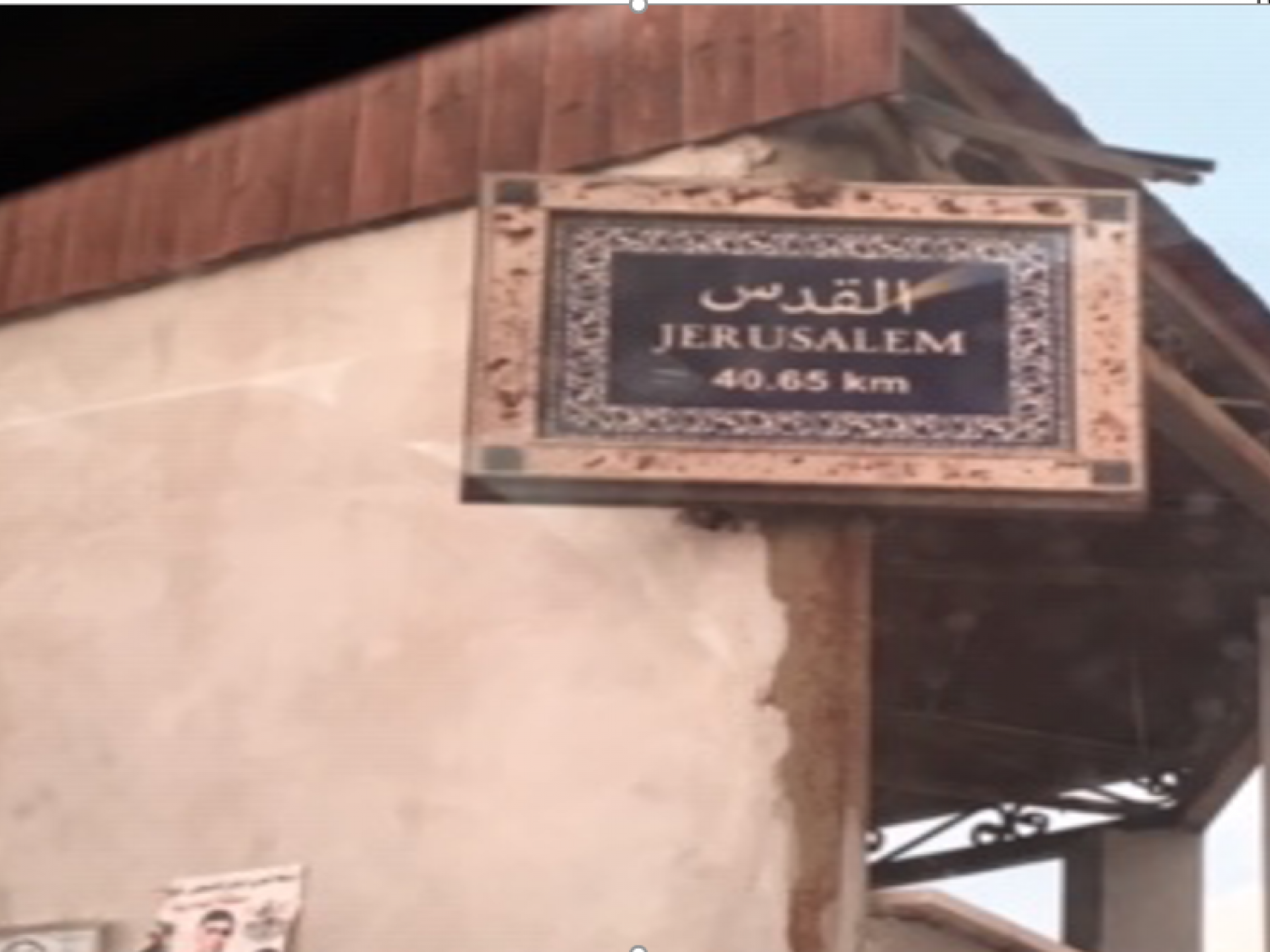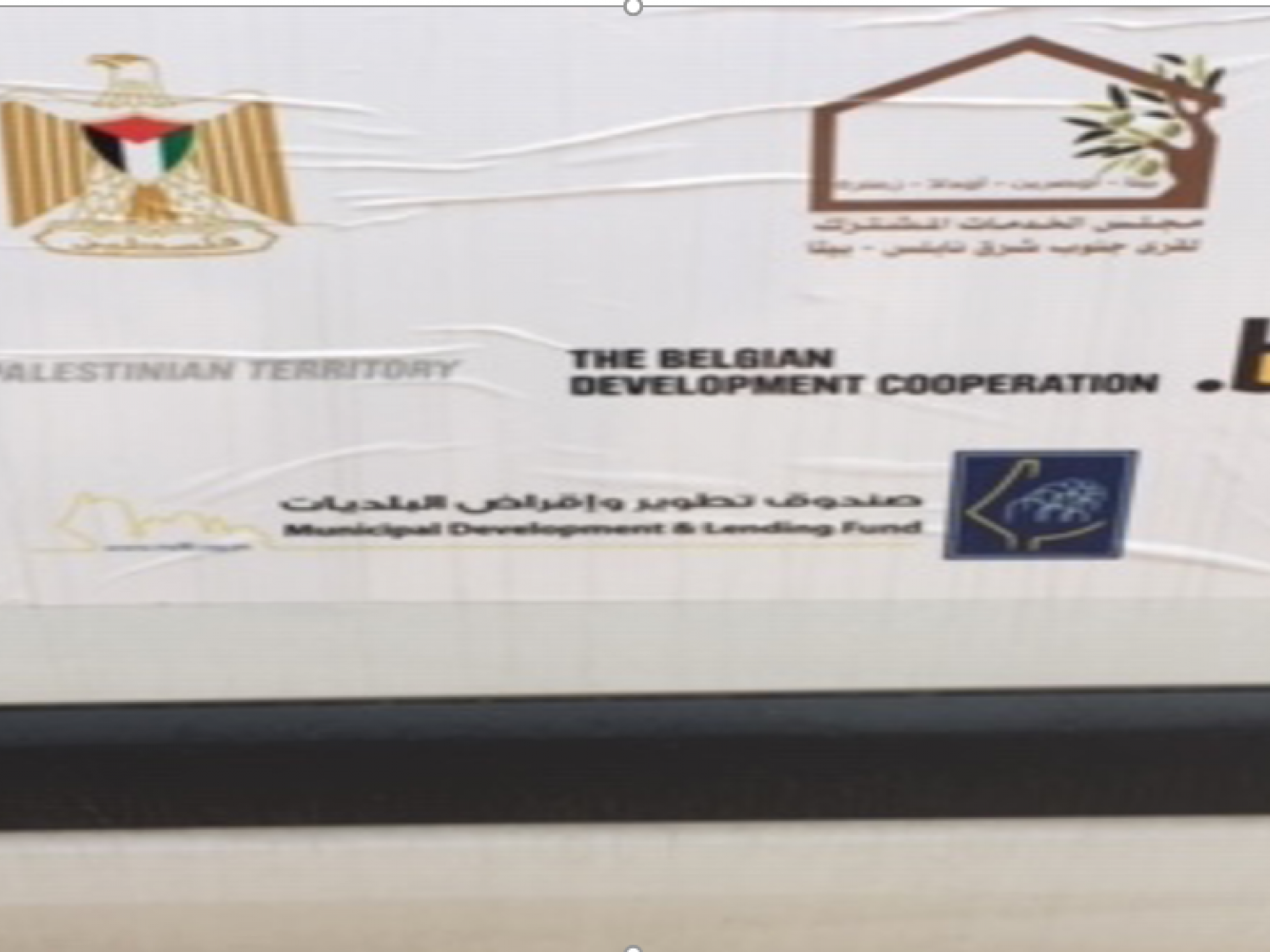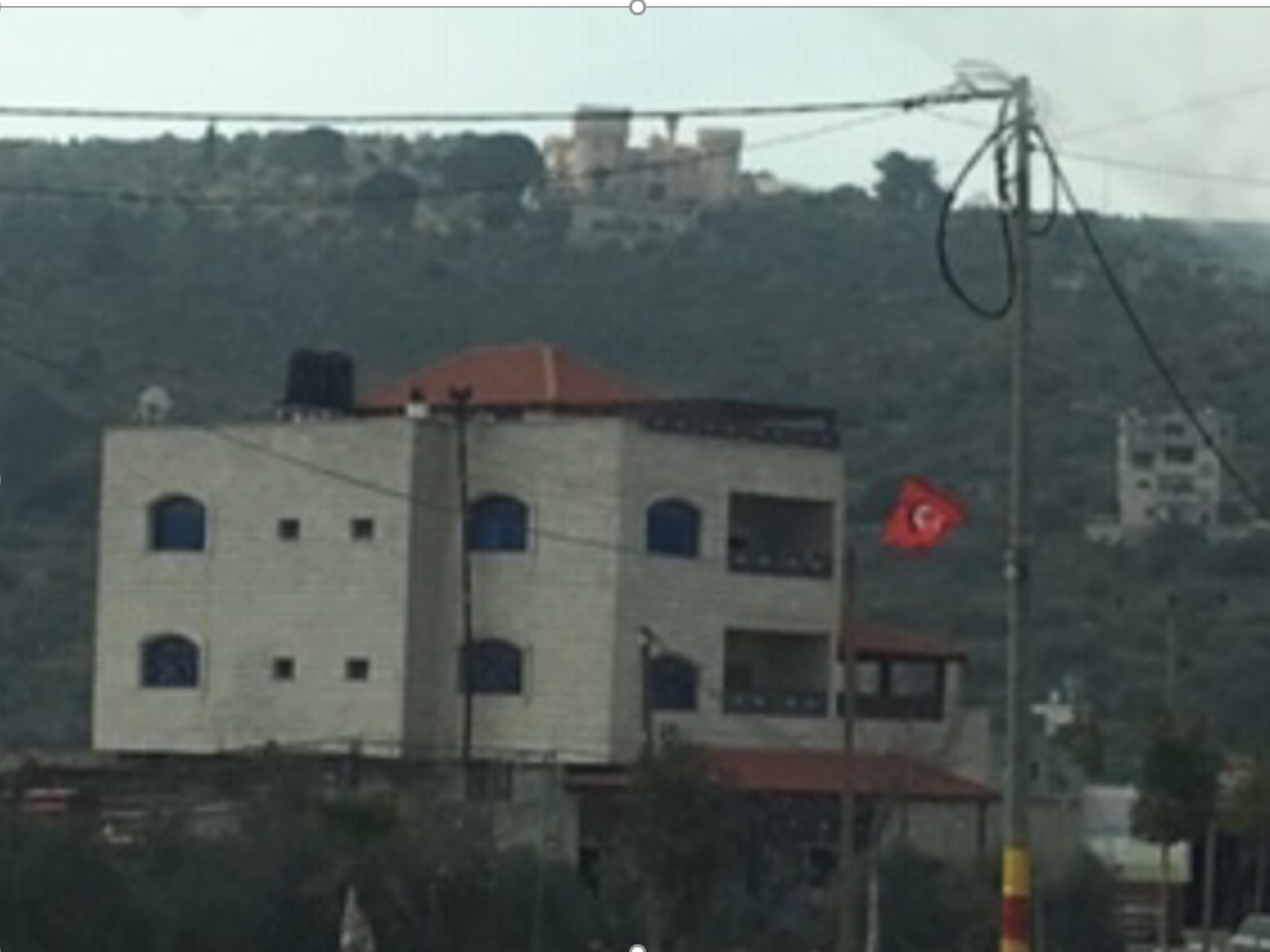Beita, Burin - tours in the villages
MAIN POINTS: The main issue in both places is the harassment of the Israeli settlers in the area. Secondly, the problem of being unable to develop the residential area because the Israeli authorities refuse permits. Finally, the fear of what will happen to the town if Israel goes ahead with its plans for expanding the development of the area exclusively for the settlements.
Beita is a town of 12,000 people, high rate of unemployment. Many work in Israel, others in agriculture. Beita’s fruits and vegetables are well known and marketed in the whole area, including Nablus. At the Council building we spoke to N.H., the town engineer, and to V. a lovely young woman who has a university degree in English. N.H. took time out from his work preparing an LDB Plan, i.e. a master plan for the town’s future development. N.H. is one of the eleven members of the town Council, which includes 3 women; it meets weekly and governs the town.
EDUCATION: There are 7 kindergartens, 6 elementary schools, mixed boys and girls. There are 2 high schools for girls and 1 large high school for boys. As many as 1000 of the high school graduates go on to universities, in Nablus and in Ramallah. But, as in all the Palestinian communities we visited, there is a very high rate of unemployment in the graduates’ fields of study. Many become laborers in Israel. V. told us that the children begin to learn English in kindergarten, and even French; in Elementary and High School, they study English 4 hours @ week.

MEDICAL SERVICES: There are two clinics in the town – one is run by the government and the other by a charitable organization. The clinics are open 3 days a week, with a pediatrician, a surgeon and an orthopaedic specialist—who all come once a week.
The payment is minimal. There are also visits by the French Doctors of the World organization (Medecins du Monde). OTHER SERVICES: N.H. told us quite proudly that Beita is known as a pioneer in the services it offers. Two Palestinian charity organizations for women offer courses, e.g. in awareness for women, and help women and children, especially if there has been a bad incident with settlers. There is also a library for the children. He is proud of the high public awareness of the Beita people.HARASSMENT: Two Israeli settlements are on mountain ridges overlooking a valley which is the southern entrance to the large city Nablus. A number of Palestinian towns and villages are situated in this valley, among them Beita. Yitzhar settlement is on the north-west ridge over the valley, Itamar on the north-east ridge. Both of these settlements try to dispossess Palestinians.
First, about a year ago Yitzhar settlers tried to set up a new outpost. They brought caravans and set them up on land belonging to Beita farmers. But they failed, unlike their later similar attempt in Huwarra in February (see our report 13.02.19). The people of Beita demonstrated against the caravans and complained to the DCO (District Commanding Officer). They took their complaint to the military court. The trial dragged out for 8 months, but the caravans were finally removed. A small victory in the fight for their rights.
Itamar, on the eastern ridge, also tried to take over the Sabikh area. Because of Roman archaeological remains there, the Israeli authorities removed the settlers. Secondly, Beita farmers whose plots are near Itamar have to get permits from the DCO in order to work in their groves. But the permits don’t assure their safety. Often afraid of the armed settlers, the farmers don’t go to their land, and so lose it.
Thirdly, the settlers sometimes come to town and close off the main road to Huwarra and on into Nablus; this forces town people to travel a long way around by unpaved paths to get in and out of town. While settlers block the road for hours and sometimes throw stones at the passing cars— soldiers stand by to protect them.
Finally, the projected new road. Last year we heard about a new road planned by the Israeli authority. Road 60, the main north-south highway through the northern half of the West Bank (Palestinian area) is not a wide highway, and is quite crowded with traffic. The Israeli authorities decided to pave a new, wide road that will make travelling easier for the army and the settlers. It will go from the Tapuach Junction north with entrances from the settlements, but NOT from the Palestinian towns and villages. They will have underpasses for the old road. We asked if this new road will affect Beita. N. H.’s face fell. “This new road will destroy Beita’s economy! Thousands of dunams of Beita’s land will be expropriated… not just for the road itself, but on 100 meters of land on its two sides— no buildings may stand. [so] hundreds of buildings will be demolished – homes and businesses.” He didn’t know if the plans had been finalized.
A Solution: We asked him his opinion on a solution to our conflict. He shook his head. “It will be very, very difficult.” That was all he was willing to say.

As we left, we heard of important projects. Next to our van another white van was parked, with the name “Belgian Development Cooperation.” The person who came out with us explained that this organization has been doing cooperative work with Beita for 5 years. They paved roads, built a school and installed a high velocity electricity grid. They also developed a public park in the town, with gardens , play areas with
installations for young and older children. There is also a café and a restaurant in the park. He said they had spent 300,000 euros in developing the park.Burin is a small, picturesque village of 3,400 people, close to Nablus. North of the village, right under the ridge are the settlements Har Bracha and Bracha, and a newer outpost, Givat Ronen. The settlement Yitzhar is south of Burin. We spoke with Y. who has been the head of the local Council since the elections two years ago.
EDUCATION: There are three schools in the village: a boys’ elementary school and a boys’ high school; one school for girls that is both elementary and high school. All the girls study together. Near the boys’ high school there is a plot of empty land. The village Council drew
up a plan to build a regional agricultural high school, but the Israeli government refused to allow it to be built. All the plans are ready, if Israel ever agrees.
EMPLOYMENT: We were given these statistics: 20% unemployment; 20% of the men work as laborers in Israel; 25% are employed by the Palestinian Authority; 3% are farmers; the rest (32%) have children who work abroad—in the USA, the Arab Gulf States, and Canada; a few in Europe. They send money home, and some build big villas.
HARASSMENT: We asked if they had a problem of harassment from Israeli settlers. “Every day!” was the answer. The settlers come down from Yitzhar, and from Givat Ronen. The latter throw stones at the nearest houses and break the fences that the farmers build. Secondly, they chase shepherds out of their fields. Finally, they come with a tractor to plow a field in order to take it over. They also attack the boys’ high school: settlers come from Yitzhar, Givat Ronen or Bracha and throw stones at the school windows. The younger pupils are sent home immediately. Sometimes the older boys try to throw stones back at the settlers. Then the soldiers step in and fire tear gas at the pupils who then run home.
What Will Be? Then Y. looked at us very seriously and said, “I have a question for you. What will be the result of the elections in Israel?” We were, of course, completely surprised. As the conversation went on it became obvious that Y. knew all about the political scene in Israel. He knew the names of the parties and the people involved; he even knew all about Kahane’s legacy. “Israelis say Israel is a democracy. Is that what Bibi thinks?” he asked. Finally, we asked him how he sees the solution to our conflict. “All Palestinians want to live in peace, with our rights, alongside of Israel.”
